- Home
- Piers Anthony
Wielding a Red Sword
Wielding a Red Sword Read online
Wielding
A Red Sword
By Piers Anthony
CONTENT
Chapter 1 - Mime
Chapter 2 - Prince
Chapter 3 - Princess
Chapter 4 - Storm
Chapter 5 - Sword
Chapter 6 - Mars
Chapter 7 - Battle
Chapter 8 - Satan
Chapter 9 - Lachesis
Chapter 10 - Thanatos
Chapter 11 - Chronos
Chapter 12 - Gaea
Chapter 13 - Ligeia
Chapter 14 - Hell
Chapter 15 - River
Chapter 16 - Revolt
Chapter 17 - War
Author's Note
Chapter 1 - MIME
It was a traveling show, the kind that drifted from village to village, performing for thrown rupees. There was a chained dragon who would snort smoke and sometimes fire when its keeper signaled, a harpy in a cage who flapped her wings and spat curses at the audience, and a mermaid in a tank who would, for a suitable fee, bring her head out of the water to kiss a spectator. Standard stuff, hardly impressive, but fun for the children. The dragon was old and flabby, the harpy was ugly, and the mermaid, though pretty enough, evidently spoke no local dialect. But at least this show was convenient and cheap, and the crowd was thick.
The man who watched was undistinguished. He was slightly below average height, wore a faded gray shawl, and he kept his mouth shut. He had evidently suffered some abrasion of the face, for it was to an extent swathed in dirty bandages, so that only his eyes, nose, and mouth were exposed. He had the mark of the Sudra caste, though he could have been taken for an Aryan in race. Since none of the twice-born would mix voluntarily with the more lowly merchants and laborers of the once-born, his identity had to be taken at face value.
Of course, caste had been legally abolished in most of the kingdoms of India. But what was legal did not necessarily align with what was actual. One had only to watch the reaction of anyone who inadvertently brushed by a Pariah to understand that!
Now the main show developed. A stage magician performed sundry acts of illusion, causing the faces of demons to manifest in smoke and a flock of birds to startle out of his hat. One of the birds let a dropping fall on the head of a spectator, who complained loudly, whereupon the magician gestured and changed the bird into a shining gold coin, which tumbled to the ground and rolled. The spectator pounced on the coin—but it converted to a venomous snake that hissed and struck at him, while the other spectators laughed. Good magic!
Then there was an exotic dancer, who undulated in the company of a giant python. Her performance was partly artistic and mostly erotic, and the percentage of men in the throng increased. Then the python opened its mouth and took in her left hand. The dance continued, and the reptile swallowed her arm and then her head, and finally the rest of her body. There was strong applause as her two kicking feet disappeared into the maw and the snake slithered heavily back into its curtained cage.
Now a startlingly lovely young woman took her place on the small stage. Her skin was so pale as to be almost white, and her hair was the color of honey. She had a little harp and she set herself and began to play and sing. The song was in English, a language generally but not universally understood in this region. This was a novelty, and the audience was quiet.
The song and music spread out to captivate the listeners. There was a special quality to it that caught them up, even those who could not follow the words. It was as if a mighty orchestra were playing and a chorus of deific beings singing—yet there was only the one woman and her instrument. This was a phenomenon beyond what had been presented before, and all stood entranced.
When the song was done, there was a hush. Then the rupees began flying, landing at the woman's feet, fairly burying them in metallic brightness. All that the audience had came forth, begging for another song.
The woman smiled and sang again, and it was as before: every person within range was transported. Even the old ones were rapt. Now those of the Vaishya caste, the husbandmen and merchants, entered the throng, heedless of propriety, listening. When the second song was done, the shower of money from these higher-class listeners overwhelmed the prior contributions. Applause enough!
The Sudra man stood transfixed, even after the woman had taken up her harp and retired to her wagon and the next show had come on. Jostled by his neighbors, he recovered enough to walk away, his gaze almost vacant. He had evidently been smitten and hardly knew how to cope with it.
He found his way to a wall that offered some slight seclusion and leaned against it. Then he reached into an inner pocket and brought out a ring in the form of a coiled little snake. He set this ring on his smallest finger and brought it covertly to his bandaged face.
"She?" he whispered in English.
The snake-ring came alive and squeezed his finger once.
The man removed the ring from his finger and returned it to his hidden pocket. He paused, considering. How was he to approach this lovely and talented woman, and how would she receive him? He could get more specific advice from the ring, but he preferred to work it out for himself, as his possession of the ring could identify his nature if it were seen by others.
In the end, he waited till dusk, when the throng dissipated and the traveling show was closing up for the night. He approached the covered wagon he had seen the woman with the harp enter. He stood by it and clapped his hands, gently, so as to attract attention without generating too much of it.
The woman appeared. "Yes?" she inquired. Now her lovely fair hair was bound in a heavy kerchief, and she wore a functional skirt and jacket, but her beauty overcame these restrictions.
The man opened his mouth, but did not speak. He gestured helplessly.
"I am sorry," the woman said. "I can see that you have been injured, but I do not speak the local dialect. Do you know English?"
The man tried again. His mouth worked, and finally the sounds came out. "Ah—ah—ah—I do," he said.
She glanced sharply at him, tilting her head. "You are shy?" she inquired. "There is no need to be. What is it that you wish?"
The man struggled again to speak. "N-n-n-not sh-sh-shy," he said. "I st-st-stu-stu-stutter."
She did not even smile. "Come inside," she said.
He followed her into the wagon. Inside, the space was tight, but well organized; there was room for two to sit facing each other, and this they did.
"I do not know you," the woman said. "I have not before talked directly with a person with your problem. Forgive me if I am clumsy; I don't quite know how to help you."
Again the man tried. It took time for him to get the words out, but the woman was patient and did not try to interrupt or to fill in the words for him. Digested, what he said was this: "I need help to leave the Kingdom."
"But if you have committed some crime, and are fugitive from justice, I shall not help you," the woman said.
He asserted that he was not a criminal; he just had need to depart anonymously.
"Forgive me again," she said, "but I must ask you to touch my harp. This will advise me whether what you say is true."
He touched her harp. Nothing happened.
She smiled. "Thank you. Now let us be introduced. I am Orb Kaftan of Ireland, and I sing for my supper. My harp is a gift of the Mountain King and it will not suffer the touch of a dishonest person. I am sorry I had to doubt you before."
"I—must not tell you my identity," the man said haltingly. "I am not injured; I wear the bandage to conceal my face."
"Ah—a political refugee?"
"Approximately." His stutter was diminishing as her warm attention helped him, but that word remained a considerable challenge.
; "May I see your face?"
He unwound the bandage. His face was clear and handsome, almost aristocratic. "But I must not show it openly," he said.
"I think we might help you, but I am not sure you would like the manner," Orb said. "We always have need of inexpensive labor, tending the animals, cleaning the cages, menial chores. I think you are of higher birth than that."
"I am. I will do the work."
"Perhaps we can improve upon your camouflage," she said. "Let me fetch you a mask."
She set him up with a clown-mask. She assured him that it would not seem unusual, as long as he remained with the group, as most of the members had more than one task, doubling as entertainers and workers.
And so he joined the group and shoveled dragon manure and cleaned the harpy cage and fed fish to the mermaid. He was paid only with food, a bunk in a wagon, and his right to be anonymous.
The group moved slowly from village to village, on wagons hauled by rented elephants, and put on its show at every stop.
After several days, the man approached Orb again. "I think I could perform," he explained haltingly.
"But everybody laughs at the clowns!" she protested.
"They laugh with the clowns," he clarified. "And I could do other things that don't require speaking. I could be a mime, a juggler, an acrobat."
"These things are not as easy as they may appear," she protested.
"But I have some natural ability and some training," he said. "My mouth may be handicapped, but not my body."
"Well, if you're sure, I can take you to the tour master," she said doubtfully. "But he is an exacting man."
"Take me to him."
She did. The tour master was large and fat and, when he wasn't playing to a crowd, he tended to scowl. "Show your stuff or get out," he said gruffly.
The clown did a front-flip in the air, then stood on his hands, then flipped back to his feet.
"So-so," the master said, unimpressed. "Can you do it on a high platform?"
The clown nodded. There was no platform handy, so he scrambled lithely up a tree and took his stance on a horizontal branch. He repeated his flip and handstand, then swung himself down, around, and back to the top of the branch.
The master became more interested. No fear of heights, eh? What else can you do?"
"He says he can juggle," Orb explained.
"Jugglers are a dime a dozen. He'd have to be something special."
The clown pointed to a collection of knives, used by a sometime knife-thrower. Then, with permission, he took five, tossed them up singly, and juggled them. The blades flashed as they twisted in the air, but no knife dropped to the ground.
"What else?" the master asked, impressed.
The clown had evidently prepared for this. He went into a mime act, doing a clever imitation of a warrior whose sword kept getting in his way. He had no costume and no sword, but it came across clearly. When he managed to spear his own foot, the master smiled. When he tried to sheathe the blade rapidly and passed it through his crotch instead, the master laughed.
"You got it, mime! Work up a complete act; I'll put you on pay. We'll call you—um, let's see." The master stroked his chin. "The Mime. No, Mym. Mym the Mime! You've got a talent, boy. Wish I'd known before."
And so he joined the paid performers, leaving the dragon dung behind. "I had no idea!" Orb told him warmly. "You are a very talented person, Mym."
It was merely coordination and training, he informed her, as much by gesture as by words, for he did not like to embarrass them both by constant stammering. Orb was always understanding, but still it represented an imposition, and the last thing he wanted to do was burden a woman as lovely, inside and out, as she.
But her interest in him had been aroused, and his ascension to performer status brought them into closer natural association. Though the group was casteless—which made it technically Pariah—it did have its own type of stratification, with the master at the top, the performers next, and the menials at the bottom. Orb, as the main attraction, was second only to the master in importance—but as Mym refined his act and the flow of rupees increased, his status ascended correspondingly. At first the others had been condescending or diffident, because of his speech impediment and his inexperience, but no one laughed at him, because all were outcasts in their own fashions. The mahout who tended the lead elephant had a clubfoot, and the dragon-trainer was an alcoholic—the dragon liked the smell of alcohol—and the cook was so grossly fat that he expected in due course to assume performer status as a freak. None of them were inclined to laugh at something as minor as stuttering.
In fact, Mym discovered that the group was a kind of family; it looked out for its own, and he had become a part of it. This became clear one day when they were setting up for a show in a village not far south of Ahmadabad, the giant capital of Gujarat. He was helping the exotic dancer, Pythia, prepare for her act. She had to strip and spread a special protective grease over all her body, so that the digestive acids of the python would not damage her skin. She had a magic pill she would gulp just before the snake swallowed her head that enabled her to stop breathing for twenty minutes or so; that and the salve enabled her to perform her act once each day. But the girl who normally helped her and who reached into the python's open mouth to haul her out by the feet when the act was over, had run away with a handsome drifter, and a replacement had not yet been recruited. So Mym, whose act was done before hers, helped her with the preparation and the conclusion.
He was spreading the salve on her body, making sure to catch every spot, when they were interrupted by a party of armed, uniformed officers of the Gujarat law-enforcement staff. "Stand where you are, masked man!" one snapped at Mym, holding his sword ready. "Identify yourself."
Mym, of course, was unable to respond, in part because of the stutter. Had they found him? He had thought he was free...
The dancer, knowing his problem, faced the troops. Her breasts shone with grease and became more pronounced as she inhaled. "This is a private dressing room!" she protested in the local dialect.
The chief officer contemplated her assets. "This is Kingdom business, woman," he said gruffly. "We are in pursuit of a party of thuggees. They may have passed this way—and this man is masked."
"This man is my assistant!" she exclaimed, taking a really significant breath. "He is no thuggee! He has been with me all day!" She shook herself, and all three officers struggled not to gape. "He wears a mask so the fumes of the python won't hurt his face." She snapped her fingers, and the great snoozing snake woke and lifted its snout, hissing.
The men backed away. "To be sure," the leader said.
"If you speak for him—"
"Of course I speak for him!" she said. "I couldn't function without him."
They departed, and Mym relaxed. He resumed spreading the salve. "Certainly I spoke for you," Pythia said. "I didn't even have to lie, really, but I would have. I know you're no thuggee, and whatever you did do to make you hide is no business of mine. We cover our own, here." He continued with the salve, not trying to speak. "You do a good job," she added reflectively. "Your hands are clever. You get me covered much faster and better than I could do myself, even in the easy places. That girl I had before never was much good; she'd tickle me in one place and skimp on another."
Which meant that she had been at risk for burns from the stomach acids. Mym knew she didn't like that!
"Do you know why I asked for you to help me?" Pythia ontinued. "It wasn't because you are good. It was because I can get any ten men to do this, but their hands would be sweating hot and their eyes would be hotter. I don't like having a man do it—never since one got carried away two years ago and tried to rape me." She smiled reflectively. "The only reason he missed was because the salve made me too slippery to hold. Actually, I'd have given it to him, if he'd asked; I can take a man or leave him, anytime. What's a little thing inside me for a minute, compared to what I go inside of for my act? But I don't like to be forced. So I
told the master, and he made a eunuch of that man. I was the lead act, then, you see. Don't misunderstand; I'm not jealous of Orb. I'm in this for the money, and she brings in three times as much as we ever had before, and the master is generous when the takings are good. And you, too—you're bringing it in nicely, too, and that's so much the better. But that's what I'm saying; when you're with us, we take care of you, and you take care of us. The master took you on because Orb asked him to—and now he'd do anything you asked, too, because you're good for the show, Mym, you really are. But I asked for you because I knew you could handle me without making a move." She meant the handling physically—his hands rubbing salve into every part of her, public and private.
He was finished, now, and her act was almost due. She turned to speak directly to him, as she slipped into her scant costume. "I know you get hard when you stroke me; any man who's a man does. When he doesn't, I'll know it's time for me to retire. But you wouldn't try to force me, because you're the most disciplined man I ever met—yes, you are, even if you try not to show it!—and because, even if you weren't, you're in love with Orb and you wouldn't touch another woman if you thought there was any chance at all you might one day touch her, because you know she's a one-man woman and expects the same in return. So I'm safe with you, Mym. That's why."
Mym stood there, chagrined. Had it been so obvious?
She answered, not needing the question. "No, you hide it well. But Orb—what I can do to a man by showing my body, she can do just by being herself. I'm dried fish; she's caviar. So I knew what to look for."
She stepped toward the stage, bringing the python along with her, but paused once more. "And you know, you just might," she said, winked, and went on out.
If Pythia understood him that well, then perhaps she also understood Orb. If she thought he had a chance...
He watched the dance and consummation, half-dazed. But he snapped out of it as the python slithered back, bearing its burden, because he had to get Pythia out before she suffocated. The trained snake opened its mouth, which had been defanged, and Mym reached in and caught the dancer's bare feet. He hauled, and the greased body slid out. The skimpy dress had already dissolved away, leaving nothing to impede the motion. Of course this would never have worked with an ordinary python or a fully clothed and ungreased woman, but that didn't matter; it was a decent show, and as long as it never played twice at the same place, the seeming horror of it remained.

 Serial
Serial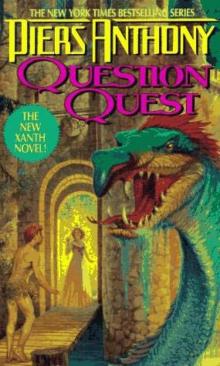 Question Quest
Question Quest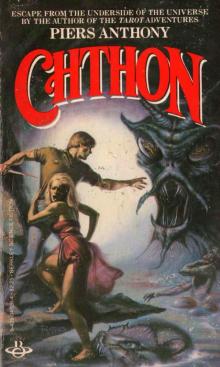 Chthon
Chthon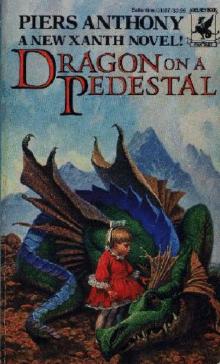 Dragon on a Pedestal
Dragon on a Pedestal E. S. P. Worm
E. S. P. Worm Hope of Earth
Hope of Earth The Series Boxed Set
The Series Boxed Set Blue Adept
Blue Adept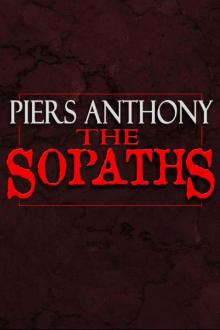 The Sopaths
The Sopaths Beetle Juice
Beetle Juice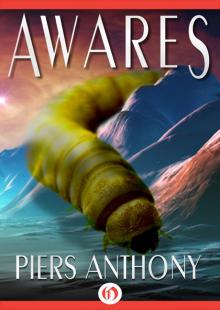 Awares
Awares Golem in the Gears
Golem in the Gears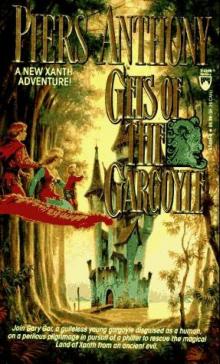 Geis of the Gargoyle
Geis of the Gargoyle Bamboo Bloodbath and Ninja's Revenge
Bamboo Bloodbath and Ninja's Revenge Heaven Cent
Heaven Cent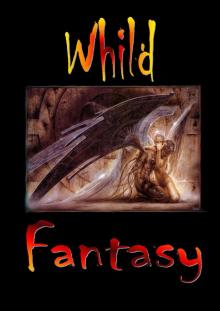 Neq the Sword
Neq the Sword Pandora Park
Pandora Park Juxtaposition
Juxtaposition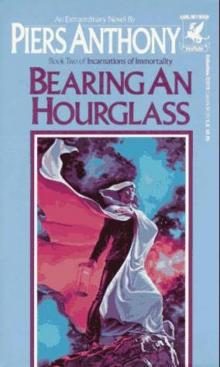 Bearing an Hourglass
Bearing an Hourglass Dragon Assassin
Dragon Assassin Board Stiff
Board Stiff Virtual Mode
Virtual Mode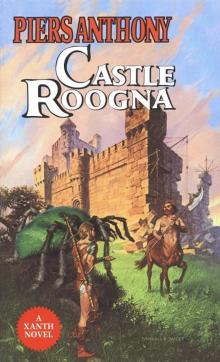 Castle Roogna
Castle Roogna Aliena Too
Aliena Too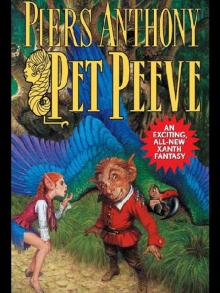 Pet Peeve
Pet Peeve The Metal Maiden Collection
The Metal Maiden Collection Volk
Volk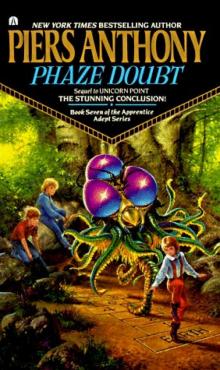 Phaze Doubt
Phaze Doubt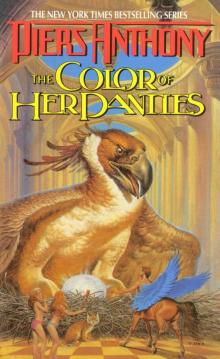 The Color of Her Panties
The Color of Her Panties Amazon Slaughter and Curse of the Ninja Piers Anthony
Amazon Slaughter and Curse of the Ninja Piers Anthony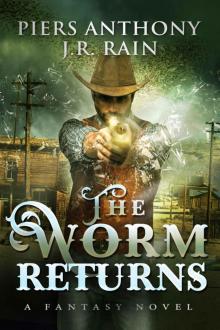 The Worm Returns
The Worm Returns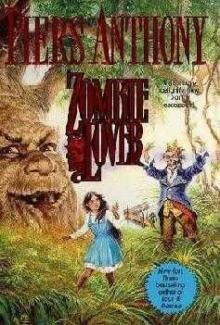 Zombie Lover
Zombie Lover Xone of Contention
Xone of Contention The Gutbucket Quest
The Gutbucket Quest Split Infinity
Split Infinity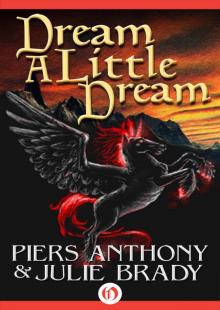 Dream a Little Dream: A Tale of Myth and Moonshine
Dream a Little Dream: A Tale of Myth and Moonshine Balook
Balook Out of Phaze
Out of Phaze The Secret of Spring
The Secret of Spring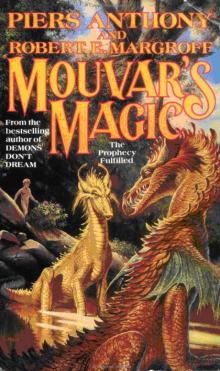 Mouvar's Magic
Mouvar's Magic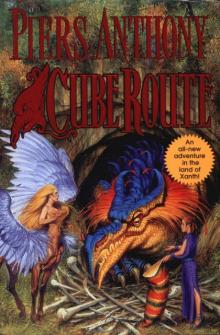 Cube Route
Cube Route Mercenary
Mercenary Total Recall
Total Recall Man From Mundania
Man From Mundania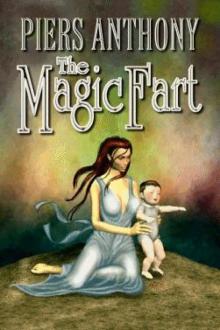 The Magic Fart
The Magic Fart Letters to Jenny
Letters to Jenny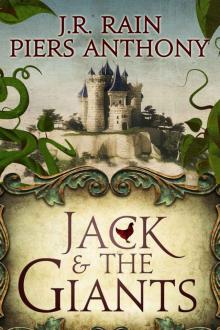 Jack and the Giants
Jack and the Giants Executive
Executive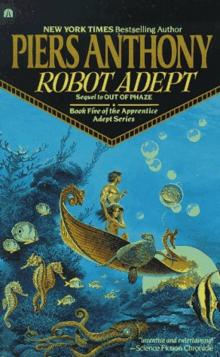 Robot Adept
Robot Adept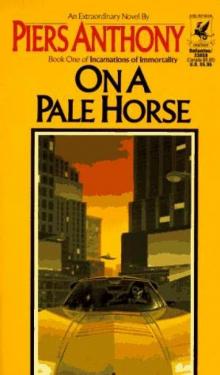 On A Pale Horse
On A Pale Horse Vale of the Vole
Vale of the Vole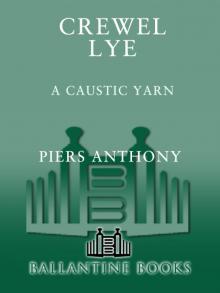 Crewel Lye
Crewel Lye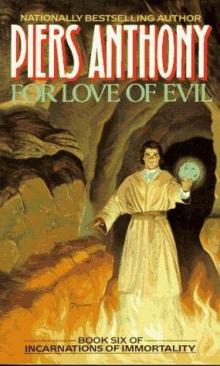 For Love of Evil
For Love of Evil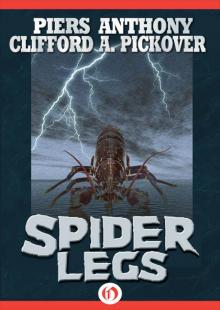 Spider Legs
Spider Legs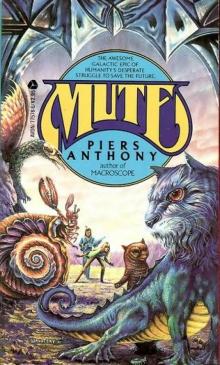 Mute
Mute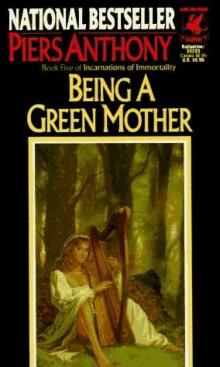 Being a Green Mother
Being a Green Mother Hair Suite
Hair Suite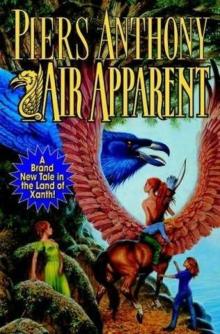 Air Apparent
Air Apparent Politician
Politician Aliena
Aliena Phthor
Phthor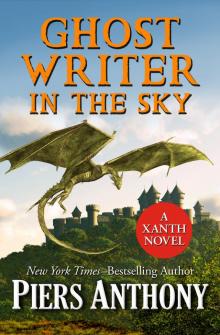 Ghost Writer in the Sky
Ghost Writer in the Sky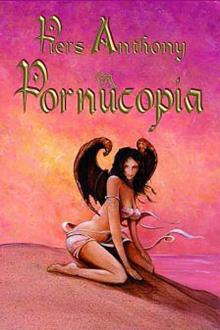 Pornucopia
Pornucopia Eroma
Eroma Shepherd
Shepherd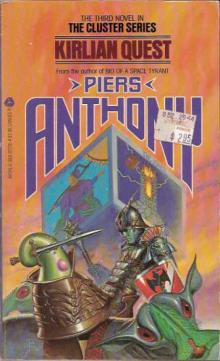 Kirlian Quest
Kirlian Quest Swell Foop
Swell Foop God of Tarot
God of Tarot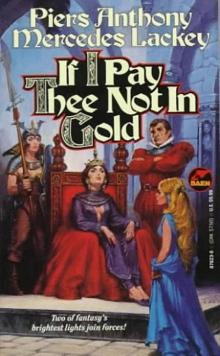 If I Pay Thee Not in Gold
If I Pay Thee Not in Gold Amazon Expedient
Amazon Expedient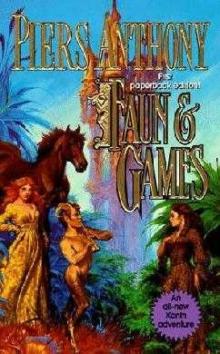 Faun & Games
Faun & Games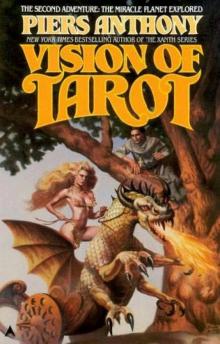 Vision of Tarot
Vision of Tarot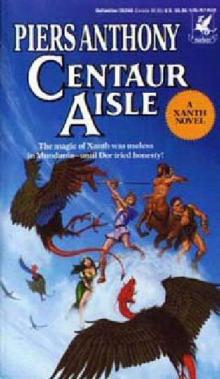 Centaur Aisle
Centaur Aisle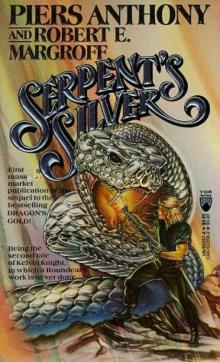 Serpent's Silver
Serpent's Silver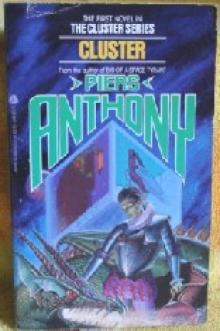 Cluster
Cluster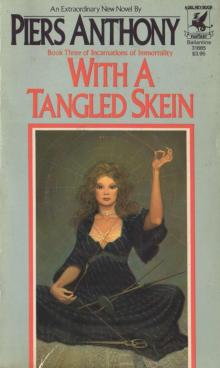 With a Tangled Skein
With a Tangled Skein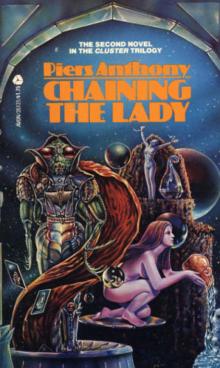 Chaining the Lady
Chaining the Lady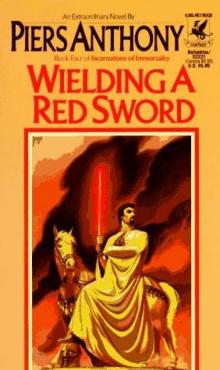 Wielding a Red Sword
Wielding a Red Sword Key to Chroma
Key to Chroma WereWoman
WereWoman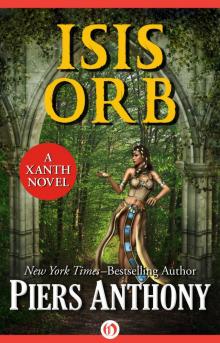 Isis Orb
Isis Orb Hair Peace
Hair Peace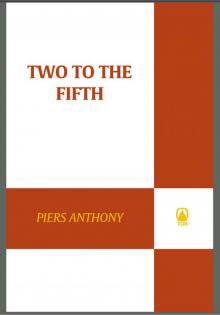 Two to the Fifth
Two to the Fifth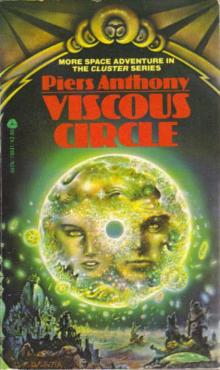 Viscous Circle
Viscous Circle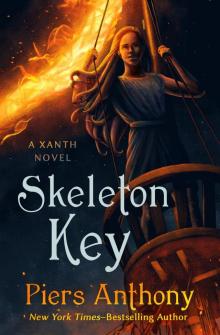 Skeleton Key
Skeleton Key Cautionary Tales
Cautionary Tales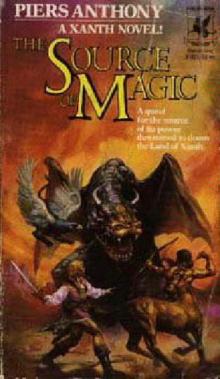 The Source of Magic
The Source of Magic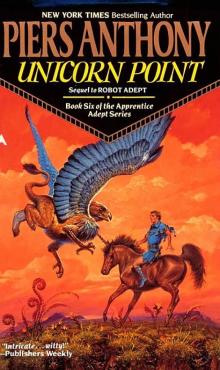 Unicorn Point
Unicorn Point Writer's Retweet
Writer's Retweet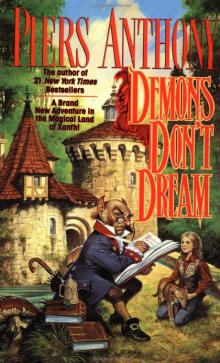 Demons Don't Dream
Demons Don't Dream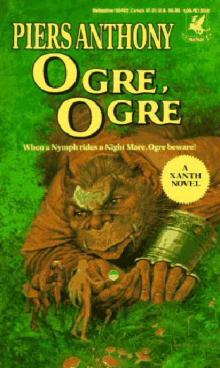 Ogre, Ogre
Ogre, Ogre The Iron Maiden
The Iron Maiden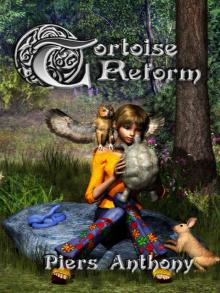 Tortoise Reform
Tortoise Reform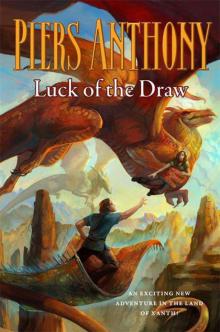 Luck of the Draw
Luck of the Draw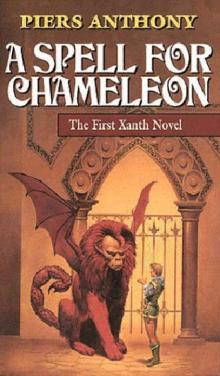 A Spell for Chameleon
A Spell for Chameleon Yon Ill Wind
Yon Ill Wind Currant Events
Currant Events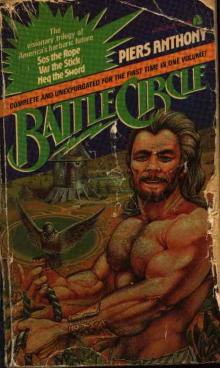 Var the Stick
Var the Stick And Eternity
And Eternity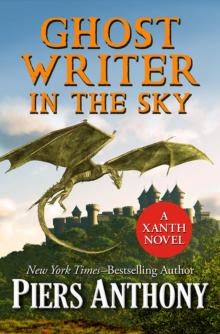 Kiai! & Mistress of Death
Kiai! & Mistress of Death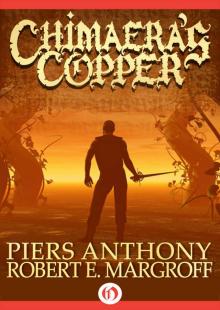 Chimaera's Copper
Chimaera's Copper Refugee
Refugee Isle of View
Isle of View Thousandstar
Thousandstar Mer-Cycle
Mer-Cycle Service Goat
Service Goat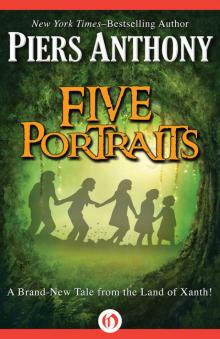 Five Portraits
Five Portraits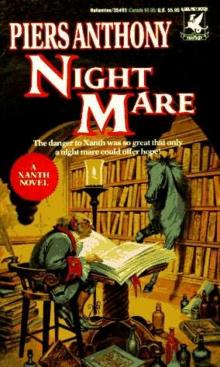 Night Mare
Night Mare Steppe
Steppe Lavabull
Lavabull Well-Tempered Clavicle
Well-Tempered Clavicle Aladdin Relighted
Aladdin Relighted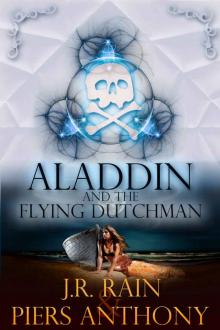 Aladdin and the Flying Dutchman
Aladdin and the Flying Dutchman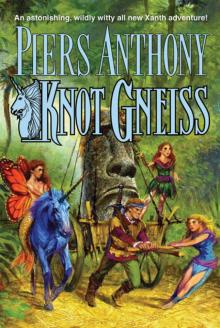 Knot Gneiss
Knot Gneiss Roc and a Hard Place
Roc and a Hard Place Aladdin Sins Bad
Aladdin Sins Bad Flytrap
Flytrap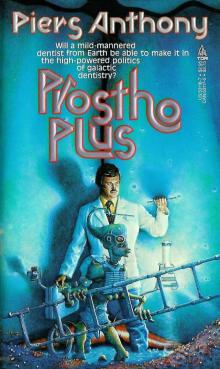 Prostho Plus
Prostho Plus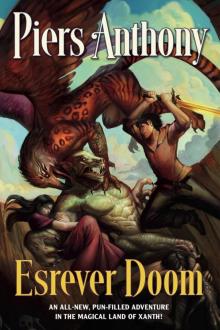 Esrever Doom
Esrever Doom Hair Power
Hair Power The Journey
The Journey Virtue Inverted
Virtue Inverted Of Man and Manta Omnibus
Of Man and Manta Omnibus Trail Mix: Amoeba
Trail Mix: Amoeba Noah's Brick
Noah's Brick Odd Exam
Odd Exam Magenta Salvation
Magenta Salvation Jest Right
Jest Right Fire Sail
Fire Sail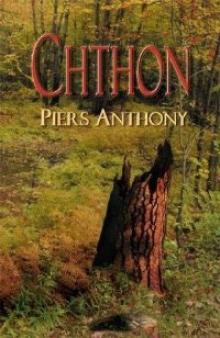 Chthon a-1
Chthon a-1 Amoeba
Amoeba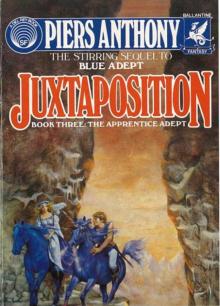 Juxtaposition aa-3
Juxtaposition aa-3 Pira
Pira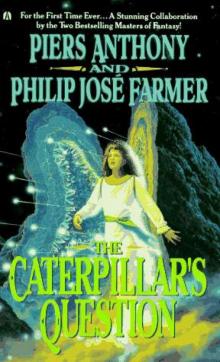 THE CATERPILLARS QUESTION
THE CATERPILLARS QUESTION What Fears Become: An Anthology from The Horror Zine
What Fears Become: An Anthology from The Horror Zine Bio of a Space Tyrant Vol. 3. Politician
Bio of a Space Tyrant Vol. 3. Politician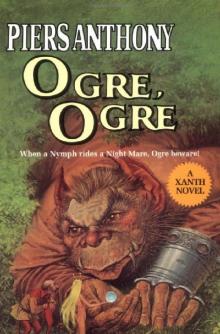 Ogre Ogre x-5
Ogre Ogre x-5 Rings of Ice
Rings of Ice On a Pale Horse ioi-1
On a Pale Horse ioi-1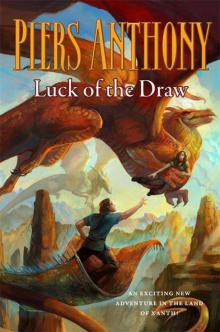 Luck of the Draw (Xanth)
Luck of the Draw (Xanth)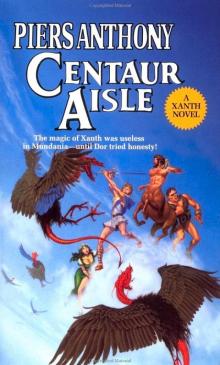 Centaur Aisle x-4
Centaur Aisle x-4 Thousandstar (#4 of the Cluster series)
Thousandstar (#4 of the Cluster series) Gutbucket Quest
Gutbucket Quest Isle of Woman (Geodyssey)
Isle of Woman (Geodyssey)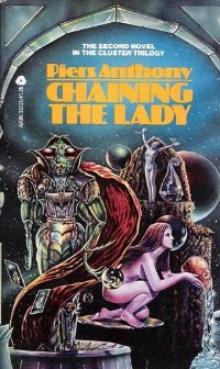 Chaining the Lady c-2
Chaining the Lady c-2 To Be a Woman
To Be a Woman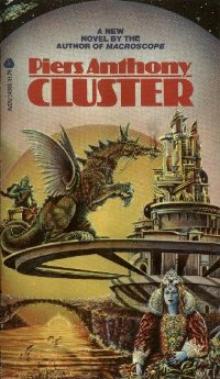 Cluster c-1
Cluster c-1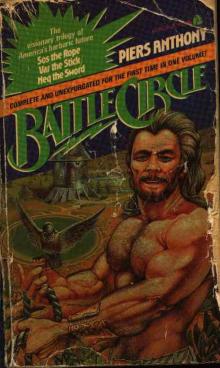 Battle Circle 2 - Var the Stick
Battle Circle 2 - Var the Stick Mercenary (Bio of a Space Tyrant Book 2)
Mercenary (Bio of a Space Tyrant Book 2)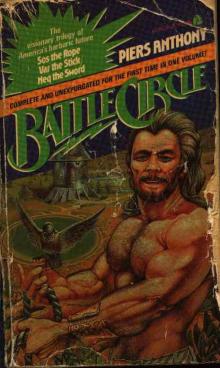 Battle Circle 1 - Sos the Rope
Battle Circle 1 - Sos the Rope Xanth 30 - Stork Naked
Xanth 30 - Stork Naked Secret of Spring
Secret of Spring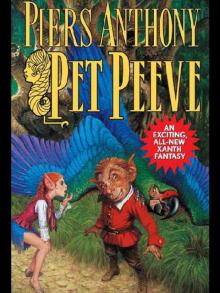 Xanth 29 - Pet Peeve
Xanth 29 - Pet Peeve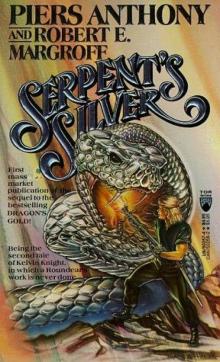 Serpents's Silver
Serpents's Silver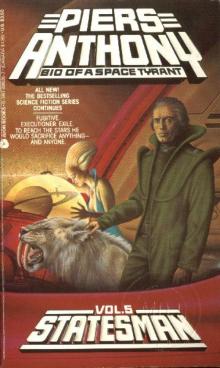 Statesman by Piers Anthony
Statesman by Piers Anthony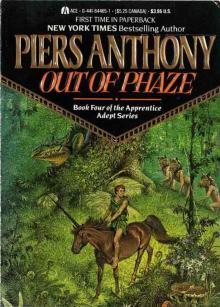 Out of Phaze aa-4
Out of Phaze aa-4 Amazon Slaughter & Curse of the Ninja
Amazon Slaughter & Curse of the Ninja